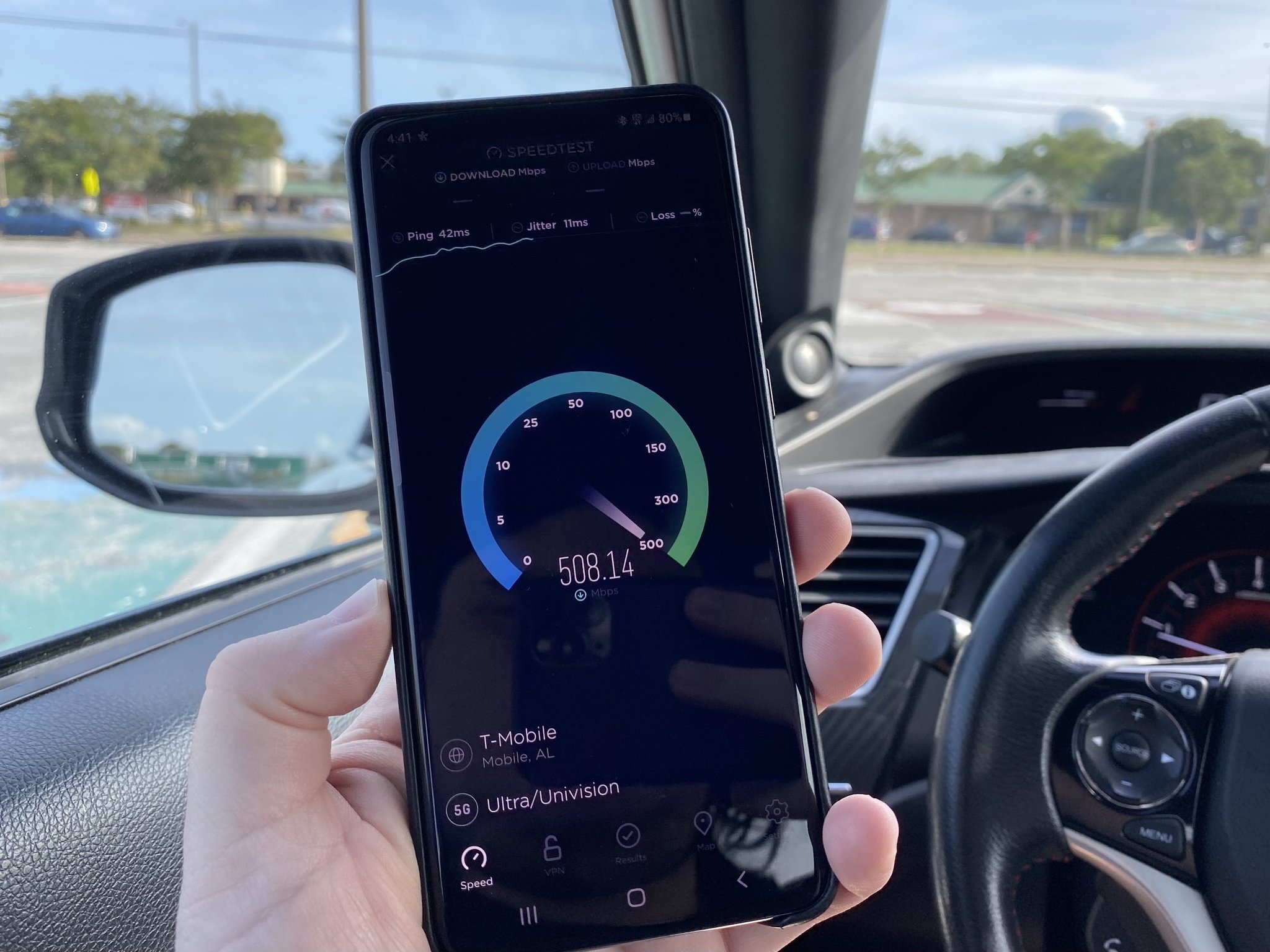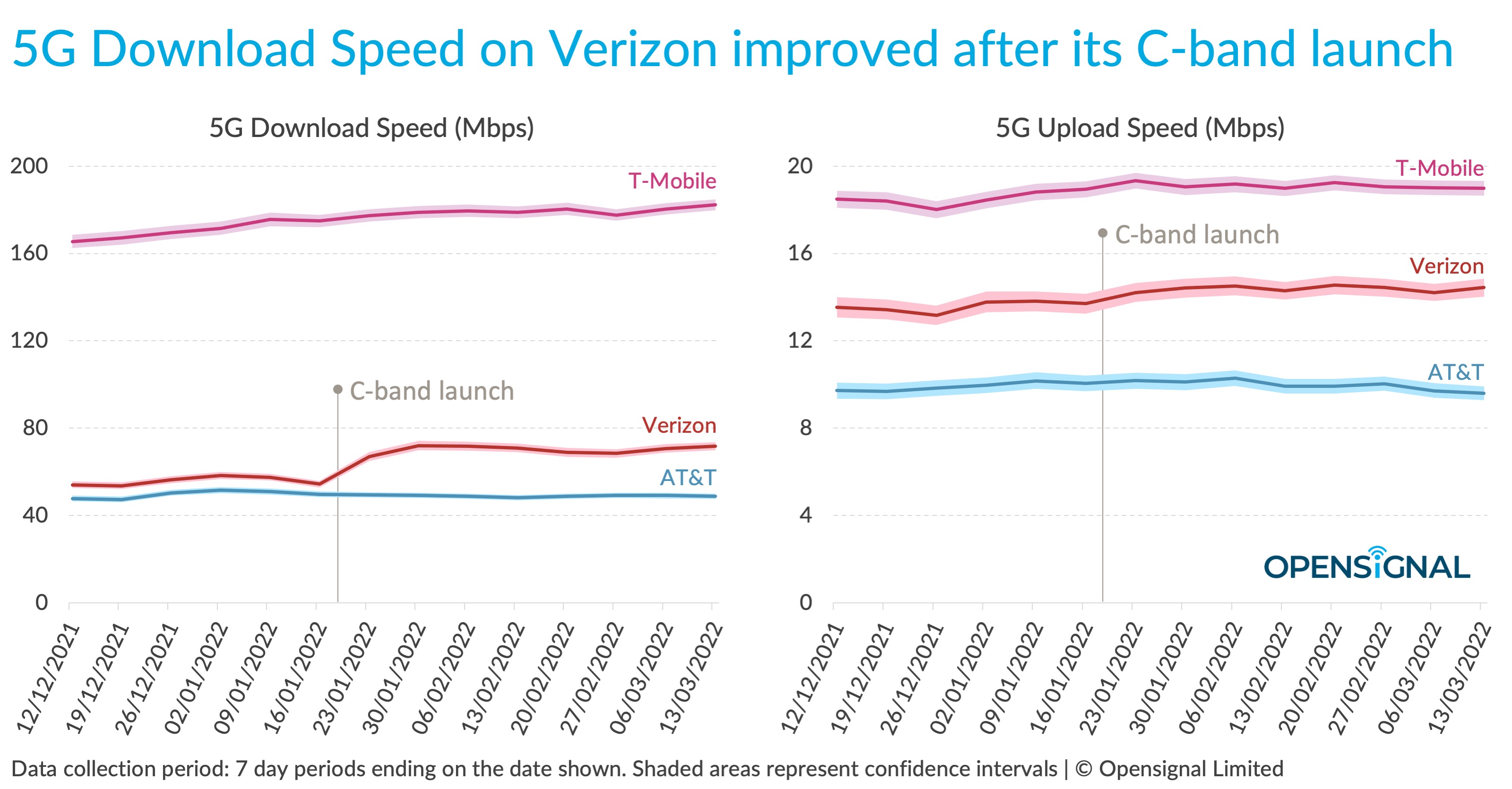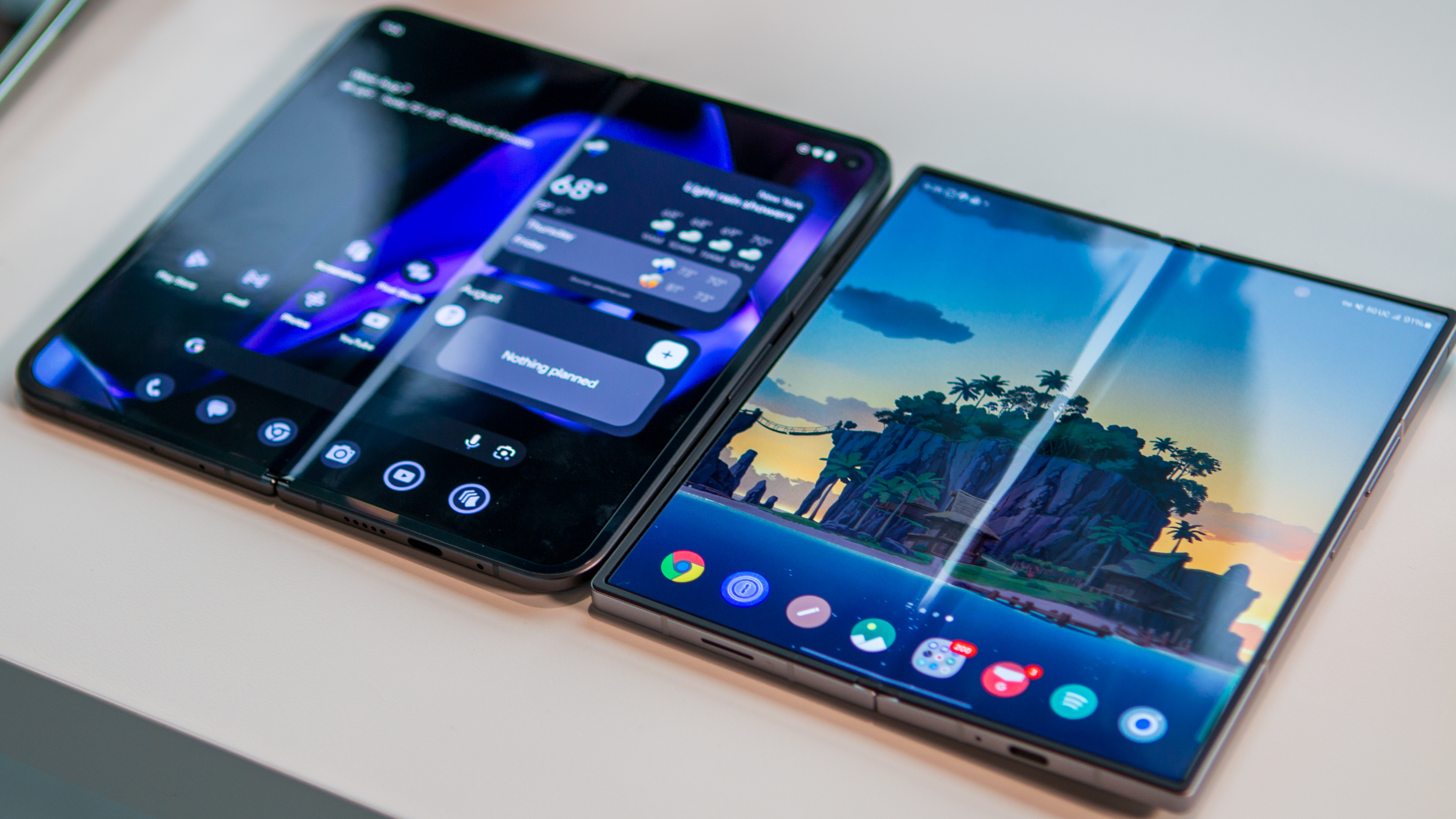Verizon’s C-band 5G is helping the carrier close the network performance gap with T-Mobile
T-Mobile stays on top but Verizon is catching up fast

What you need to know
- Analyst Opensignal found impressive improvements on Verizon's 5G network thanks to C-band deployment.
- Overall average download speeds on Verizon showed a significant increase since Verizon launched its new 5G spectrum.
- Verizon covered up to 100 million people by the end of January 2022 with 175 million expected by the end of 2022.
- T-Mobile is still the overall leader in 5G performance thanks to its vast 2.5GHz spectrum.
Opensignal's latest C-band analysis shows some optimistic results for C-band 5G as overall network performance significantly increases for Verizon. This analysis also showed results for AT&T and T-Mobile with T-Mobile maintaining its lead with steady improvements in the period between January 19 and March 19, 2022. AT&T fell behind as its limited C-band launch failed to make a statistically relevant dent in T-Mobile's lead. Even so, mid-band speeds on AT&T were consistently higher than the network's average.
C-band is the name given to the mid-band spectrum between 3.45GHz and 3.55GHz that was purchased by carriers to bolster their 5G networks. This spectrum is available in large 40MHz and 60MHz chunks for AT&T and Verizon respectively. T-Mobile also purchased some C-band rights but the quantity is much lower than the other carriers.
T-Mobile primarily uses 2.5GHz spectrum it acquired as part of its purchase of Sprint for its faster 5G connectivity. Since this spectrum was available from the start and had already been used by Sprint for 5G, T-Mobile was able to command an early lead in mid-band 5G coverage and now covers 210 million people with it.
While Verizon came out swinging with C-band and now expects to cover 175 million with C-band by the end of 2022, AT&T had a much smaller launch. AT&T launched mid-band 5G in just eight markets. It's worth mentioning that the carrier did not win as much C-band spectrum as Verizon did and has since continued to acquire more mid-band spectrum that it will surely deploy down the road.

Opensignal found that since the launch of C-band 5G, Verizon's overall average network speeds increased from 55.7Mbps to 70.6Mbps. That's an increase of 26.7% since its launch in mid-January. Upload speeds remained relatively stable across the three carriers during the same period, however. AT&T's C-band launch failed to make a noticeable impact on overall speeds which isn't too unexpected given the small size of its C-band coverage.
Isolating mid-band 5G performance though shows just how powerful C-band can be. Verizon nearly closed the gap in download performance with an average speed of 211.8Mbps compared to T-Mobile's 225.5Mbps. AT&T's C-band only came in at 160.0Mbps in the same period.
Looking at upload speeds, AT&T and T-Mobile were nearly identical at 18.5Mbps and 18.2Mbps respectively. Verizon took a small victory here with 20.7Mbps upload speeds.
Be an expert in 5 minutes
Get the latest news from Android Central, your trusted companion in the world of Android
The report also looked at performance in five cities, Chicago, Indianapolis, Los Angeles, Minneapolis, and Phoenix. T-Mobile came out on top in all five cities, though the speeds were much closer in Indianapolis and Los Angeles.
If you were looking to try out 5G, you'll need a phone that makes the most of the networks. T-Mobile's mid-band 5G network has a bit more support than the newer C-band spectrum but many of the best Android phones such as the excellent Galaxy S22 support both networks. As long as you have a compatible phone, you can access either carrier's faster 5G networks.
When Samuel is not writing about networking or 5G at Android Central, he spends most of his time researching computer components and obsessing over what CPU goes into the ultimate Windows 98 computer. It's the Pentium 3.


